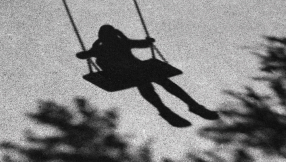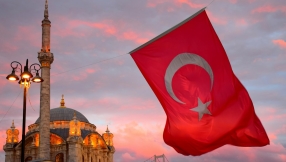Chinese police have detained 60 more members of the Early Rain Covenant Church in Chengdu, according to China Aid.
The move against the church follows the arrest of 100 church members and leaders last week including its pastor Wang Yi and his wife Jiang Rong.
Wang Yi left a statement with his church to be issued in the event of his arrest. In a powerful message he stated: 'I am filled with anger and disgust at the persecution of the church by this Communist regime, at the wickedness of their depriving people of the freedoms of religion and of conscience.' However, he said: 'But changing social and political institutions is not the mission I have been called to, and it is not the goal for which God has given his people the gospel.'
He said: 'I accept and respect the fact that this Communist regime has been allowed by God to rule temporarily.' 'Regardless of which regime I live under now or in the future, as long as the secular government continues to persecute the church, violating human consciences that belong to God alone, I will continue my faithful disobedience,' he said.
A prayer on Early Rain's Facebook page reads:
'Lord, today we worship you in police cars. We worship you in police stations. We worship you in detention centres. We worship you in prisons. And we worship you in homes. We have no other goal except to worship you alone. We ride in buses heading to police stations as though riding down the road to Zion. For you tell us, Lord, that you are seeking worshipers who worship you in spirit and in truth.
'May you be pleased with our worship. We have nothing to offer you but our hearts. We offer them up sincerely to you now.
'Wherever I am, whatever I meet, I will follow your will forever.'
The arrests are part of an evident crackdown on 'underground' or unofficial churches and reflect offical disquiet at the growth of the underground church movement. On Saturday police raided a children's Bible class at Rongguili Church in Guangzhou and closed the church, and in September Zion Church in Beijing, one of the capital's largest, was closed after it refused to install CCTV cameras to monitor the congregation.
The crackdown, with alarming reports of the detention of hundreds of thousands of Uighur Muslims in 'reeducation camps', has led to increased criticism from Western monitors of religious liberty who have warned of the 'devastating human toll' of China's policies.
In the US, Senator Marco Rubio and Representative Chris Smith, the chair and cochair respectively of the bipartisan Congressional-Executive Commission on China (CECC), said of the arrests and church closures: 'We are deeply concerned by the escalating crackdown against Christians in China, including the forced closure of prominent Protestant churches, confiscation of church property and harassment and detention of church and lay leaders alike.
'These developments are set against the backdrop of the human rights crisis unfolding in the Xinjiang Uyghur Autonomous Region, where upwards of a million or more Uyghur and other Muslims have been interned in "political reeducation" camps, amidst growing reports of forced labor.
'In short, Chinese President and Communist Party General Secretary Xi Jinping's efforts to "sinicize" religion are taking a devastating human toll. Chinese officials and others complicit in severe religious freedom violations must be held accountable and specific cases of those unjustly harassed, detained, and imprisoned must be raised at the highest levels of government. As Christians around the world prepare to celebrate Christmas, China's Christians and other faith communities are under siege and treated as enemies of the state for daring to worship and peacefully live out their faith.'
In a speech this week marking the 40th anniversary of the opening up of China's economy, President Xi Jinping warned other nations against 'dictating' to China. 'No one is in a position to dictate to the Chinese people what should or should not be done,' he said.
'We must resolutely reform what should and can be changed, we must resolutely not reform what shouldn't and can't be changed.'













